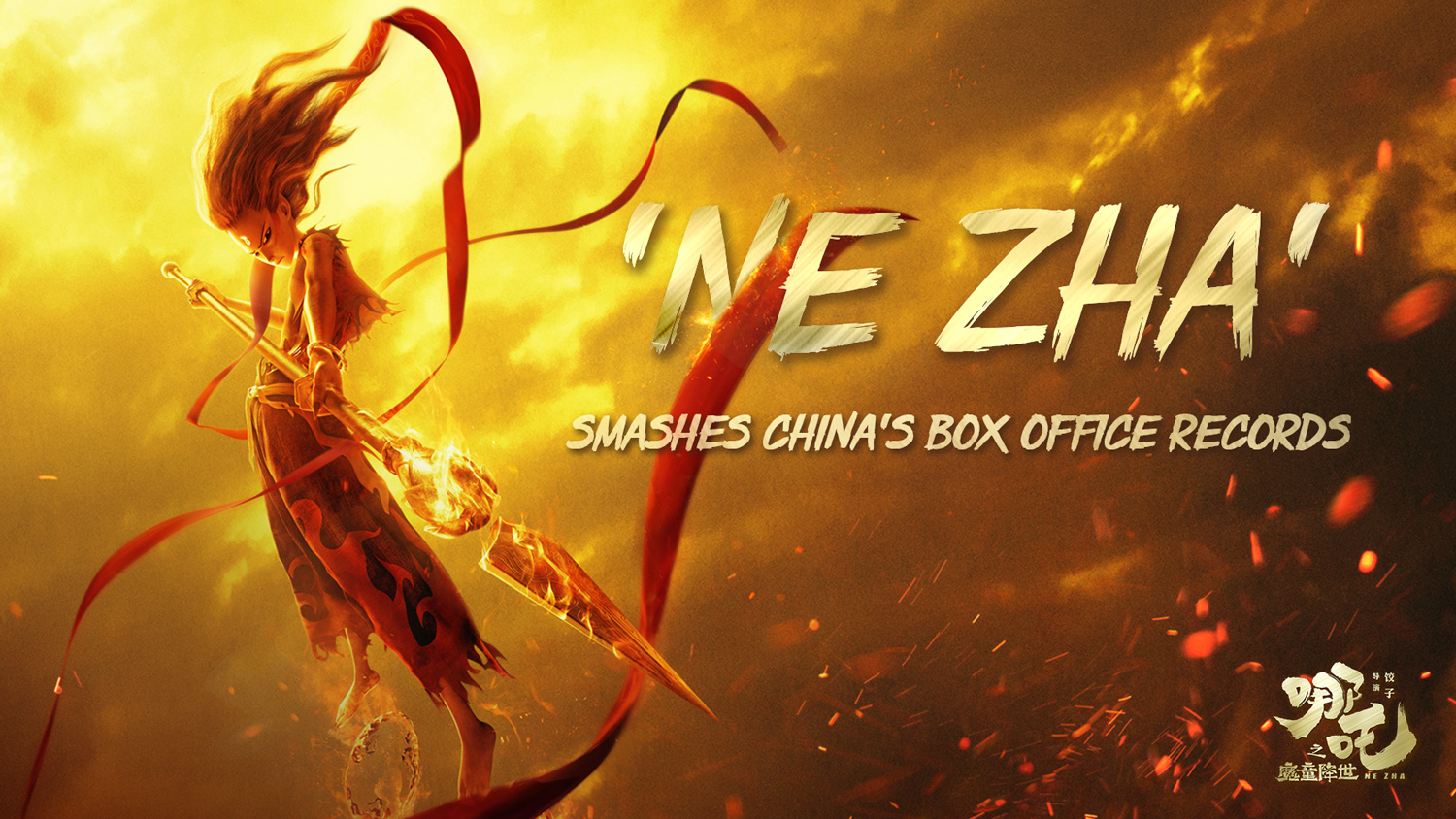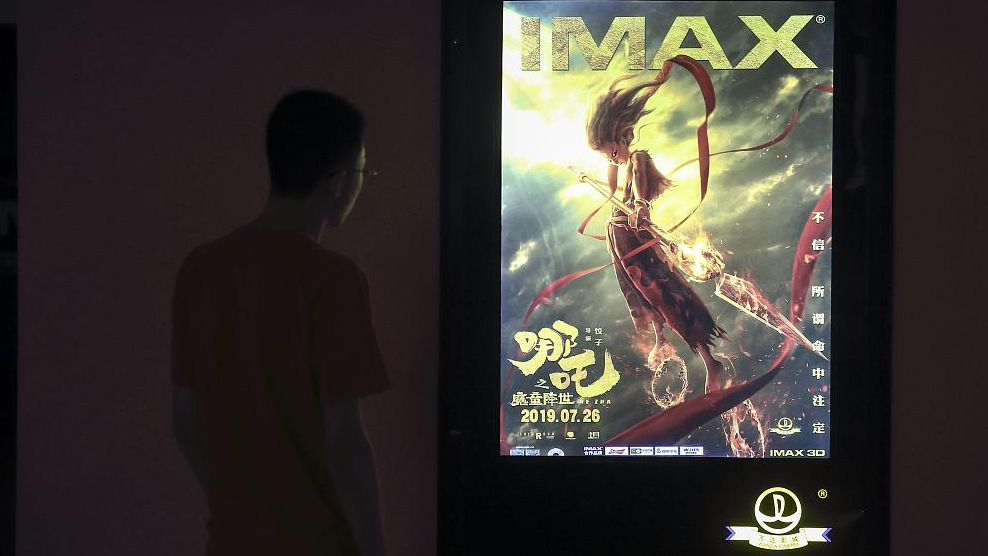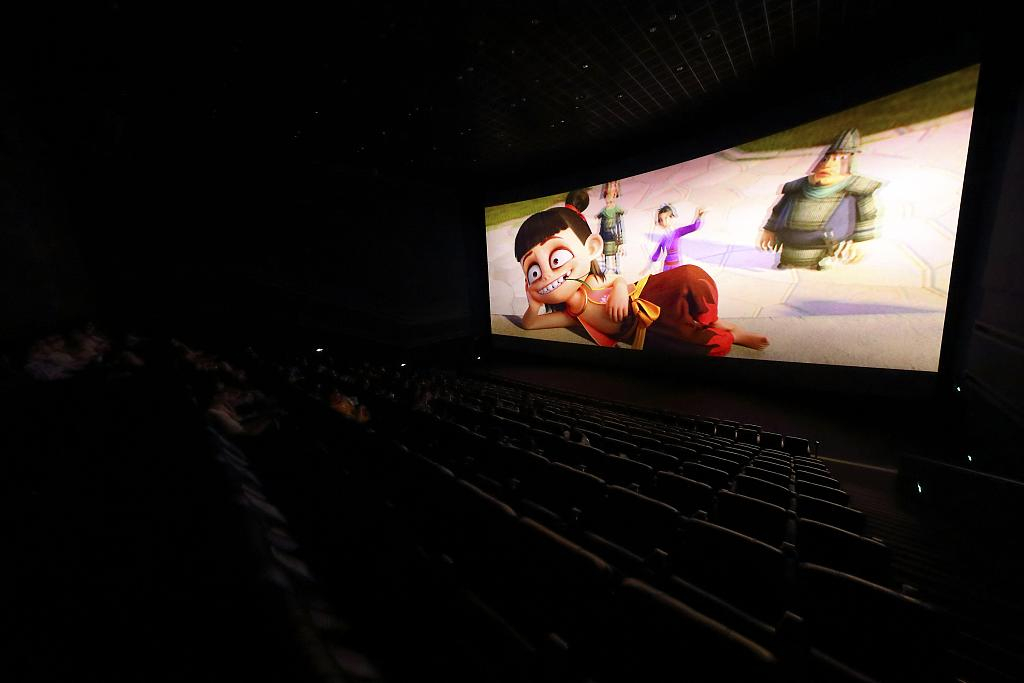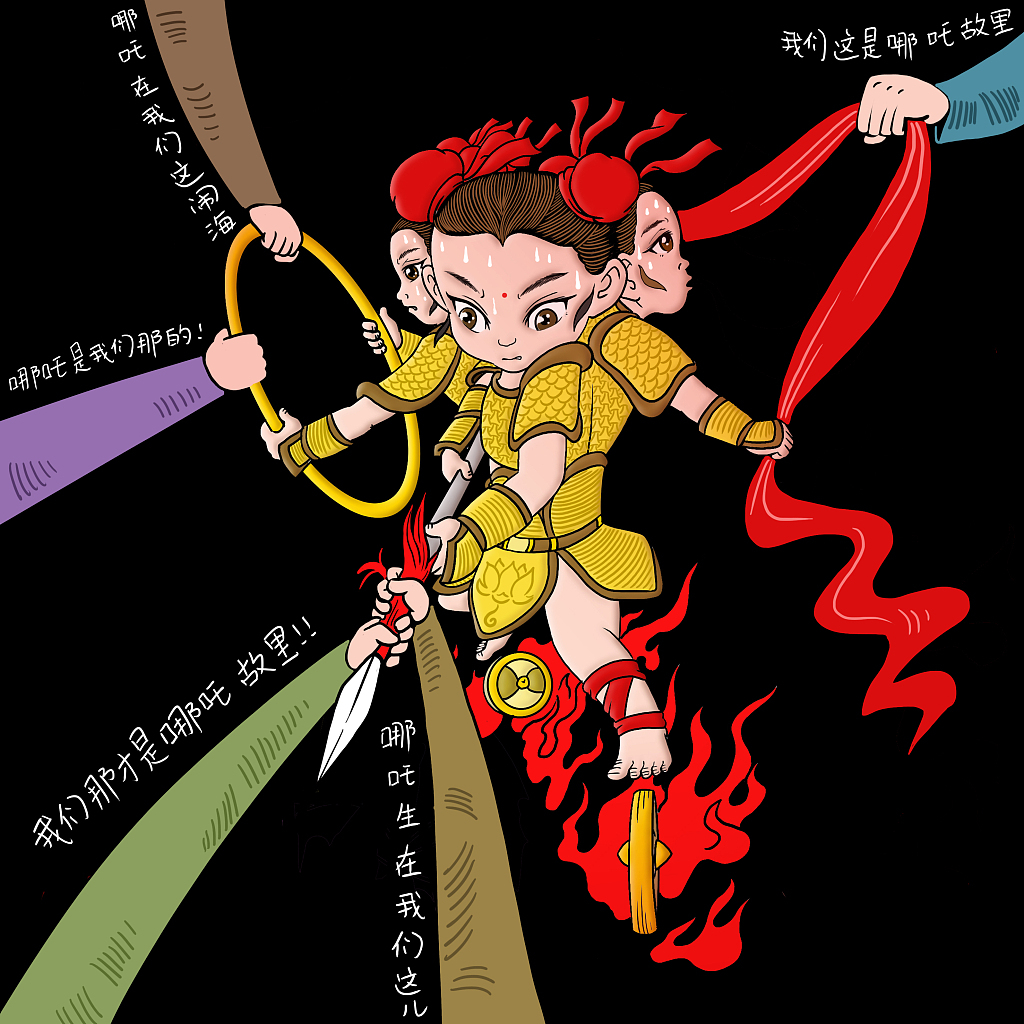

"Ne Zha" broke all records in the history of Chinese animation. Audiences relate to the rebellious antihero who struggles against his own fate. But will it be able to repeat the domestic breakthrough abroad?
By bringing a 3,000-year-old folk legend from Chinese mythology to the big screen, Chinese animator and director Yang Yu has hit a nerve this summer. "Ne Zha" is the third-highest grossing movie of 2019, and the fourth-highest in Chinese film history with 3.8 billion yuan (over 535 million U.S. dollars) at the box office to date.
To give the most successful Chinese animation of all time a chance to triumph over "Avengers: Endgame," the movie's distributor Huaxi Film announced on Wednesday on its official Weibo account that screening will be extended until September 26. On Thursday evening Beijing Time, it confirmed rumors that the animation will be released in North America, without giving a time frame.

Ne Zha is the antihero everyone identifies with. /Photo: VCG
A compelling, relevant plot and leading character
"Ne Zha" came at the right time during the summer vacation, after several highly expected domestic movies have dropped out, leaving the audience hungry for content. But "Ne Zha" was not just a placeholder. The animation technology was so elaborate that voices accumulated, saying that the movie heralds the rise of the Chinese animation industry.
A whole new mythical realm unfolds in front of the viewers' eyes: Mountainous lotus leaf islands floating in the sky like in an enchanted Chinese ink painting, a dark underwater world home to an enchained dragon god, and a haunted ancient Chinese village.

Ne Zha is a rebel, who fights against his fate. /Photo: VCG
Against this backdrop, the curious story of Ne Zha, a boy born as a devilish ball of flesh, takes place. While still in his mother's womb, he was cursed to become a destructive demon. He grows up as an outcast, loved by his mother, but unable to control his powers, which leaves him locked up in his parent's mansion, feared by villagers, who call him a "monster."
"Stereotypes are like mountains, you can’t move them no matter how hard you try," Ne Zha said. So he behaves like the Kongfu-fighting monster people see in him. Children watching identify with Ne Zha when he talks back to his parents, boils with rage against his bullies and lights up when a little girl wants to play with him.
Ne Zha is violent and destructive, but when push comes to shove, he does the right thing: He saves the village and his family, in defending them against his only friend, finally embracing a higher moral code.
Ne Zha is an antihero, conflicted and ambiguous, just like us – which makes him so popular among audiences. In today's complex society, the gray overshadows the black and white. Therefore, this age-old character from mythology could not be more relevant to our present times.
Potential in the overseas niche market
In China, "Ne Zha" has already become a cult-movie. On e-commerce platform Taobao, 6,000 officially licensed T-shirts were sold within two days of pre-sales, the news site sina.com reported.
On the Chinese movie-rating website Douban, the film has reached a score of 8.6 out of 10. This is overwhelming praise of Chinese moviegoers, who are known to be an unpredictable, critical and increasingly sophisticated audience.

Ne Zha is a character from Chinese mythology with origins in Taoism, Hinduism and Buddhism. /Photo: VCG
While Ne Zha is a household name in China, the complexity of the tale with Taoist origins might be too much of an exotic stretch for an overseas audience used to more straightforward Disney plots.
On IMDB, over 500 people give a little preview of how the movie may be received in North America. One reviewer said that the animation voices the modern values of generation Z. Another reviewer criticized the fact that 20 different studios worked on special effects, using different standards. "This film would benefit from more consistent character design," he wrote. "Most of the characters look like they're from different movies."
Overall, the movie scored 7.8 out of 10 on the platform, an indication that "Ne Zha" could appeal to an overseas audience in the niche Asian movie market as it touches on universal themes and values, while audiences all over the world have grown addicted to antiheroes.
(Cover image by Liu Shaozhen; trailer courtesy of Coloroom Pictures)

Copyright © 2018 CGTN. Beijing ICP prepared NO.16065310-3
Copyright © 2018 CGTN. Beijing ICP prepared NO.16065310-3